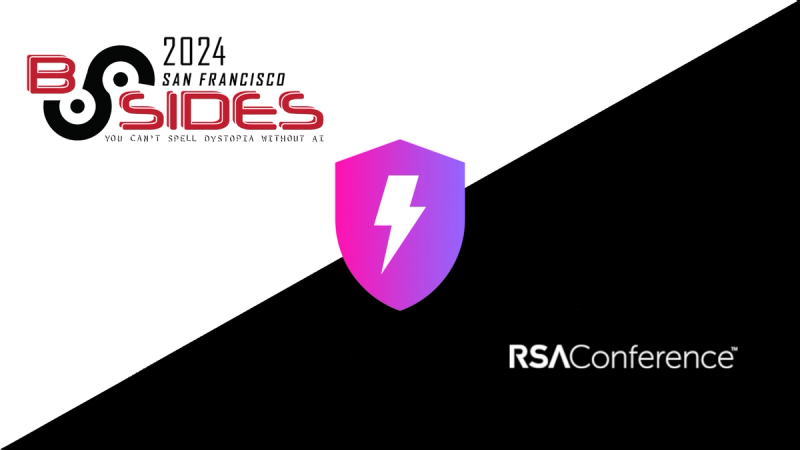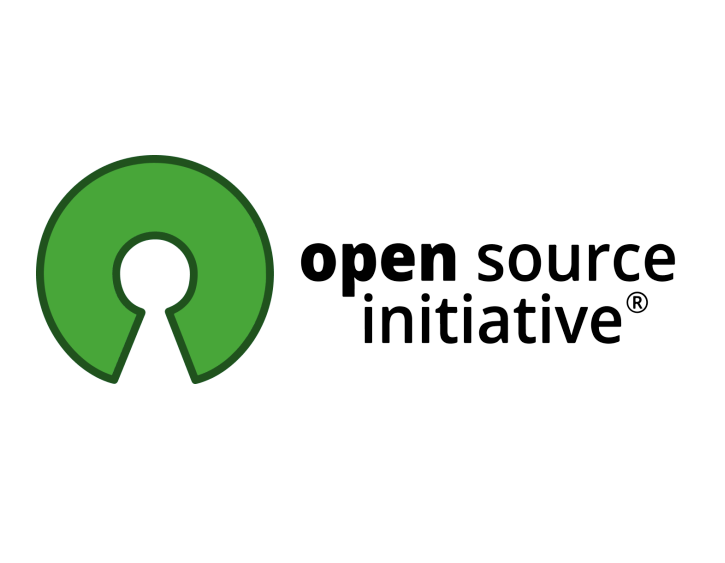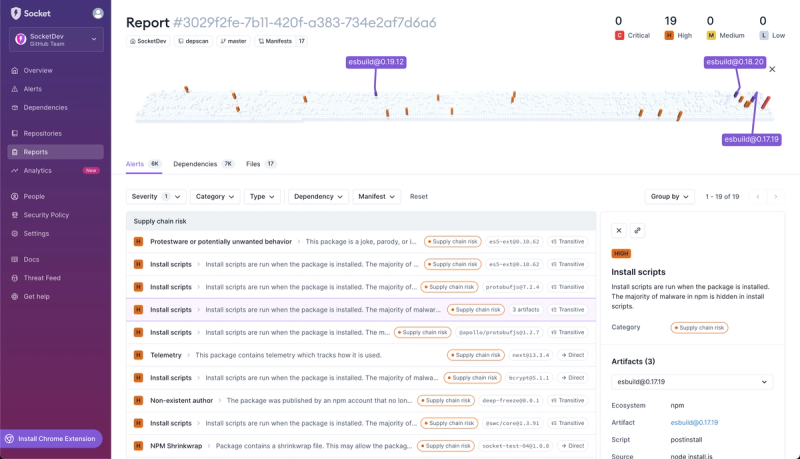
Company News
Connect with Socket at RSA and BSidesSF 2024
Come meet the Socket team at BSidesSF and RSA! We're sponsoring several fun networking events and we would love to see you there.
gcp-metadata
Advanced tools
Weekly downloads
Package description
The gcp-metadata npm package is a library that allows users to query Google Cloud Platform's (GCP) metadata service for information about the currently running instance and project. This can be useful for applications that need to understand their environment within GCP, such as retrieving instance attributes or project details.
Instance Metadata
Retrieve metadata of the current GCP instance. This includes details like the instance ID, zone, and custom metadata.
const gcpMetadata = require('gcp-metadata');
async function getInstanceMetadata() {
if (await gcpMetadata.isAvailable()) {
const instanceMetadata = await gcpMetadata.instance();
console.log(instanceMetadata);
}
}
getInstanceMetadata();Project Metadata
Fetch metadata of the current GCP project. This can include project-wide attributes like project ID and numeric project number.
const gcpMetadata = require('gcp-metadata');
async function getProjectMetadata() {
if (await gcpMetadata.isAvailable()) {
const projectMetadata = await gcpMetadata.project();
console.log(projectMetadata);
}
}
getProjectMetadata();Check Metadata Server Availability
Determine if the GCP metadata server is available and reachable from the instance.
const gcpMetadata = require('gcp-metadata');
async function checkAvailability() {
const isAvailable = await gcpMetadata.isAvailable();
console.log('Metadata service available:', isAvailable);
}
checkAvailability();The AWS SDK for JavaScript allows developers to interact with AWS services. It includes a module for querying the AWS EC2 instance metadata service, which is similar to what gcp-metadata does for GCP.
This package is designed to interact with the Azure Instance Metadata Service, providing functionality similar to gcp-metadata but for Microsoft Azure cloud services.
Readme
Get the metadata from a Google Cloud Platform environment
A comprehensive list of changes in each version may be found in the CHANGELOG.
Read more about the client libraries for Cloud APIs, including the older Google APIs Client Libraries, in Client Libraries Explained.
Table of contents:
npm install gcp-metadata
const gcpMetadata = require('gcp-metadata');
async function quickstart() {
// check to see if this code can access a metadata server
const isAvailable = await gcpMetadata.isAvailable();
console.log(`Is available: ${isAvailable}`);
// Instance and Project level metadata will only be available if
// running inside of a Google Cloud compute environment such as
// Cloud Functions, App Engine, Kubernetes Engine, or Compute Engine.
// To learn more about the differences between instance and project
// level metadata, see:
// https://cloud.google.com/compute/docs/storing-retrieving-metadata#project-instance-metadata
if (isAvailable) {
// grab all top level metadata from the service
const instanceMetadata = await gcpMetadata.instance();
console.log('Instance metadata:');
console.log(instanceMetadata);
// get all project level metadata
const projectMetadata = await gcpMetadata.project();
console.log('Project metadata:');
console.log(projectMetadata);
}
}
quickstart();
const isAvailable = await gcpMetadata.isAvailable();
const data = await gcpMetadata.instance();
console.log(data); // ... All metadata properties
const data = await gcpMetadata.instance('hostname');
console.log(data); // ...Instance hostname
const projectId = await gcpMetadata.project('project-id');
console.log(projectId); // ...Project ID of the running instance
const data = await gcpMetadata.instance('service-accounts/default/email');
console.log(data); // ...Email address of the Compute identity service account
const data = await gcpMetadata.instance({
property: 'tags',
params: { alt: 'text' }
});
console.log(data) // ...Tags as newline-delimited list
await gcpMetadata.instance({
headers: { 'no-trace': '1' }
}); // ...Request is untraced
In some cases number valued properties returned by the Metadata Service may be
too large to be representable as JavaScript numbers. In such cases we return
those values as BigNumber objects (from the bignumber.js library). Numbers
that fit within the JavaScript number range will be returned as normal number
values.
const id = await gcpMetadata.instance('id');
console.log(id) // ... BigNumber { s: 1, e: 18, c: [ 45200, 31799277581759 ] }
console.log(id.toString()) // ... 4520031799277581759
For example:
export GCE_METADATA_HOST = '169.254.169.254'
Samples are in the samples/ directory. Each sample's README.md has instructions for running its sample.
| Sample | Source Code | Try it |
|---|---|---|
| Quickstart | source code |  |
The GCP Metadata Node.js Client API Reference documentation also contains samples.
Our client libraries follow the Node.js release schedule. Libraries are compatible with all current active and maintenance versions of Node.js. If you are using an end-of-life version of Node.js, we recommend that you update as soon as possible to an actively supported LTS version.
Google's client libraries support legacy versions of Node.js runtimes on a best-efforts basis with the following warnings:
Client libraries targeting some end-of-life versions of Node.js are available, and
can be installed through npm dist-tags.
The dist-tags follow the naming convention legacy-(version).
For example, npm install gcp-metadata@legacy-8 installs client libraries
for versions compatible with Node.js 8.
This library follows Semantic Versioning.
This library is considered to be General Availability (GA). This means it is stable; the code surface will not change in backwards-incompatible ways unless absolutely necessary (e.g. because of critical security issues) or with an extensive deprecation period. Issues and requests against GA libraries are addressed with the highest priority.
More Information: Google Cloud Platform Launch Stages
Contributions welcome! See the Contributing Guide.
Please note that this README.md, the samples/README.md,
and a variety of configuration files in this repository (including .nycrc and tsconfig.json)
are generated from a central template. To edit one of these files, make an edit
to its templates in
directory.
Apache Version 2.0
See LICENSE
FAQs
Get the metadata from a Google Cloud Platform environment
The npm package gcp-metadata receives a total of 8,775,914 weekly downloads. As such, gcp-metadata popularity was classified as popular.
We found that gcp-metadata demonstrated a healthy version release cadence and project activity because the last version was released less than a year ago. It has 3 open source maintainers collaborating on the project.
Did you know?

Socket for GitHub automatically highlights issues in each pull request and monitors the health of all your open source dependencies. Discover the contents of your packages and block harmful activity before you install or update your dependencies.

Company News
Come meet the Socket team at BSidesSF and RSA! We're sponsoring several fun networking events and we would love to see you there.

Security News
OSI is starting a conversation aimed at removing the excuse of the SaaS loophole for companies navigating licensing and the complexities of doing business with open source.

Product
We're introducing dependency visualization for reports - get a quick impression of the state of your dependencies without getting lost in the details.